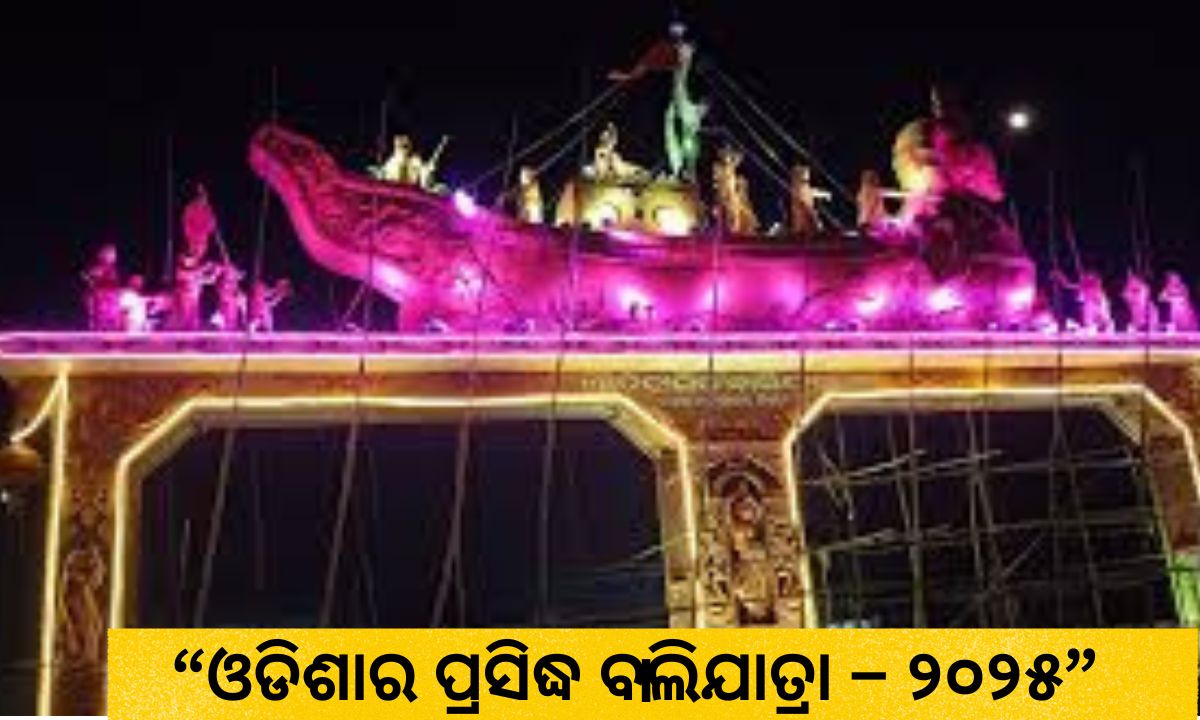Introduction: -
Diwali, the Hindu Festival of Lights, celebrates the victory of good over evil and light over darkness.
Homes glow with diyas, rangoli designs, and colorful lights. Families perform Lakshmi Puja, share sweets, and burst fireworks.
It’s a time of joy, renewal, and togetherness, uniting people in festive spirit while honoring traditions that bring hope, prosperity, and happiness to all.
The world’s famous Hindu festival in India, “Deepawali” (or Deepavali in Sanskrit means “a row of lights”. This five-day festival is the biggest in India. This honours the victory of good over evil and brightness over darkness.
In North India, it celebrates the return of Bhagaban Rama and his wife Sita to their kingdom of Ayodhya. Bhagaban Ramachandra and monkey god Hanumanji defeat of demon Ravana and rescue Sita from his evil clutches on Dussehera.
In South India, the festival is related to the defeat of the demon Narakasura. It is a day of celebration known as “Deepawali”.
Diwali Festival Date in 2023: -
The festival is based on the Hindu lunar calendar and takes place in October or November. In 2023, Diwali commences with Dhanteras on November 12. It concludes on November 6th. The main celebrations are on November 12, 2023.
How is the Diwali festival celebrated?-
The first day, known as Dhanteras, marks the start of Diwali.” Dhan” means wealth,h and “tears” refer to the 13th day of the lunar fortnight on the Hindu calendar.
Lord Dhanvantari, the Hindu God of medicine and an incarnation of Lord Vishnu, is said to have brought Ayurveda and the nectar of immortality to mankind on this day.
Goddess Laxmi, the goddess of prosperity, was born from the churning of the ocean on this day. Homes are cleaned and readied to welcome Maa Laxmi. Gold and other metals, ls including kitchen utensils,ils are traditionally purchased on Diwali.
The second day is called as Naraka Chaturdasi in South India or Choti Diwali (Little Diwali) in North India. Rangoli (Hindu or folk art) is created in doorways and courtyards of homes, and people start bursting crackers. Lord Krishna and Goddess Kali are believed to have destroyed the demon Narakasura.
On the third day and main day(Diwali day), lots of small clay lamps ( called diyas) and candles are lit and placed in houses. Fireworks are also let off everywhere, giving Diwali its name of “ Festival of Lights”.
Families gather together and perform the Laxmi Puja and give each other gifts and sweets. Kali puja is usually also celebrated on this day in West Bengal, Odisha, and Assam.
On the fourth day is Gobadhan Puja day. Merchants in Gujarat open fresh accounts for the new year and offer prayers. Gobardhan puja is celebrated in North India, to commemorate Lord Krishna’s defeat of Indra, the rain God.
In Maharashtra, Karnataka, and Tamil Nadu. The victory of Lord Vishnu over the demon King Bali is celebrated as Bali Pratpada or Bali Padyami.
Despite his shortcomings, he was a good king and much loved by the people, so Vishnu allowed him to return once a year to visit them. Kerala’s Onam festival is dedicated to welcoming the king’s return.
The fifth and last day, known as Bhai Duj, is dedicated to celebrating sisters. Brothers and sisters get together and share food, to honour the bond between them.
The rituals are performed in “Subha Deepawali”:
The rituals vary according to region. However, special blessings are given to Goddess Laxmi and Lord Ganesh, the remover of obstacles.
It is believed that Goddess Laxmi will visit every home during the Diwali period, bringing with her prosperity and good fortune. It is said that she visits every home during the Diwali period.
She visits the cleanest houses first. Therefore, people make sure their houses are spotless before lighting lamps to invite her. This cleaning also symbolizes the purification of the mind to remove the negativity, clutter, and ignorance. A small statue of the goddess is worshipped in people’s homes.
History of Diwali in Hindu Festival: -
The Diwali festival is likely a fusion of harvest festivals in ancient India. It is mentioned in Sanskrit texts such as the Padma Purana and Skandha Purana, both of which were completed in the 2nd half of the the millennium CE.
The diyas (lamps) are mentioned in the Skanda Purana as symbolising parts of the sun. It describes it as the cosmic giver of light and energy to all the life, which seasonally transitions in the Hindu calendar in the month of Kartika.
Diwali was also described by numerous travellers from outside India. In his 11th-century memoir on India, the Persian traveller and historian Al-Birunii wrote that Deepavali was celebrated by the Hindus on the day of the New Moon in the month of Kartika.
In the 16th century , Portuguese traveller Domingo Paes wrote of his visit to the Hindu Vijayanagara Empire, where the Deepavali was celebrated in October with householders illuminating their homes and temples with lamps.
Islamic, historians of the Delhi sultanas and Mughal Empire era also mentioned Diwali and other Hindu festivals. A few notable Mogul Emperor Akbar welcomed and participated in the festivities. But Aurangzeb in 1665 banned such festivals as Diwali and Holi in India.
British colonial era also made mention of Diwali, such as the note on Hindu festivals published in 1799 by Sir William Jones, a philologist known for his early observations on Sanskrit and Indo-European languages.
In his paper on The Luna year of Hindu, based in Bengal, noted four or five days of Diwali in the autumn month of (Aswin-Kartika). Bhuta chaturdasi Yamaterpanam(2nd day), Lachmipuja dipanwita( the day of Diwali), Dyuta pratipatBelipuja4th dayy), and BhartiDwity5th dayay). The Lachimipuja dipanwita remarked that Jones was a great festival at night, in honour of the Goddess Laxmi.
Fireworks celebration in Diwali: -
The use of fireworks in celebration of Diwali is common in India nowadays. This has been came into existence after about 1400 AD when gunpowder came to be used in Indian warfare. History of Fireworks in India between 1400 to 1900”, published in 1950.
Diwali is a family-oriented festival. The lights make it a very warm and atmospheric occasion, and it is observed with much joy and happiness. However lot of noise and loud fireworks are going off.
Diwali is also called as “Festival of Lights”.Diwali is associated with lights, sweets, and liveliness. As it is celebrated on the new moon (Amavasya) night, lights and fireworks have a significant role to play in the festivals.
This is why, when we hear the name of Diwali, the first impression that flashes through our minds is of multicoloured and impressive fireworks, sprinkling various sorts of bright-coloured lights in the night sky.
Diwali festival is such that, it drifts everyone into a festive and relaxed mood even before its arrival. Temples and markets are decorated and lit a few days before Diwali as a sign of paying homage to and welcoming this great Hindu festival.
Diwali festival also marks the beginning of the New Year according to the Hindu calendar, as the Aswin month ends and the Kartik months begin on this day.
Besides the contemporary LED lights, candles, and fireworks, people also use conventional earthen lamps ( diyas) for embellishing their homes. Prayers are offered to Goddess Laxmi and Bhagwan Ganesh on Diwali night.
How is Subha Diwali celebrated: -
On Diwali, people do home decoration, Diya lighting, puja, shopping, fasting, gifts, fireworks, feasts,t and sweets, etc. Celebrants prepare by cleaning, renovating, and decorating their homes and workplaces. People wear the finest clothes.
They illuminate the interior and exterior of their homes and workplaces with deep, lamps filled with vegetable oil rangolis, with colourful art. People perform worship ceremonies. They do puja of Laxmi, the goddess of prosperity and wealth.
They take part in worship ceremonies. They do puja of Laxshmi, the Goddess of Prosperity and wealth.
Celebration of Diwali in other religions: -
In some other religions in India, people also celebrate their respective festivals along with Diwali. The Jains celebrate their own Diwali, li which marks the final liberation of Mahavira.
The Sheiks celebrate Bandi Chhor Divas to mark the release of Guru Har Govind from the Mughal Empire prison. The Newar Buddhists celebrate Diwali by worshipping Laxmi.
The Hindus in Eastern India and Bangladesh mostly celebrate Diwali, by worshipping the goddess of Kali.
Importance of the famous Hindu Festivals- Diwali in India:
Diwali is the most popular festival of Hinduism, and it has much importance as it symbolises the victory of light over darkness, good over evil, and knowledge over ignorance.
This festival is generally associated with Laxmi puja. Goddess Laxmi is the goddess of prosperity. In many other regional traditions, it is connected to Bhagban Rama and Sita, Vishnu, Krishna, Yami, Durga and Kali, Hanuman, Kuber, Dhanvantri, or Vishvakarma.
In some regions, it is a celebration of the day on which Lord Rama returned to his home city , Ayodhya, after serving 14 years of exile, defeating Ravana in Lanka. He had returned with his wife Sita and his brother Laxman to Ayodhya.
Diwali or Deepavali is also the main cultural event of Hinduism, Sikhism and Jainism& and Buddhism.
Diwali is also described by several foreign travellers:-
1. The Persian traveller and historian Al Barone wrote about Diwali in his 11th-century memoir on India. He wrote that Deepavali was being celebrated by Hindus on the day of the New Moon in the month of Kartika.
2. The Venetian merchant and traveller Niccolo “de” Conti visited India in the early 15th century. He wrote in his memories, “They fix up within their temples, and on the outside of the roofs, an innumerable number of oil lamps, which are kept burning day and night “. He also mentions that the families would gather, “Cloths themselves in new garments” with, dance and feast.
3. Domingo Paes, the 16th-century Portuguese traveller, wrote of his visit to the Hindu Vijayanagar Empire. According to him, there Deepavali was celebrated in October with householders illuminating their homes, and their temples with lamps.
4. Islamic historians of the Delhi Sultanate and Mughal Empire era also wrote about Diwali and other Hindu festivals. A few Mughal emperors, particularly Akbar, welcomed and participated in the festivities, whereas other emperors banned Indian festivals in Diwali and Holi. Aurangzeb did so.
5. Publication from the British colonial era also mentioned Diwali, Sir William Jones, a philologist who is known for his early observations in Sanskrit and Indo-European languages,s published in 1799.
6. In the early 13th century Sanskrit stone inscription, written in the Devanagari script, was found. It has been found at the north end of the mosque pillar in Jalore, Rajasthan. It was built using materials from a demolished Jain temple.
Significance of Diwali in Jainism: -
According to Jain tradition, Diwali is celebrated as “Mahavira Nirvana Divas”. People of the Jain community consider that it was the day on which Lord Mahavir gave up his physical body and attained the final nirvana, salvation.
Their practice of celebration is similar to the Hindu Diwali, such as the cleaning of the home and workplace, the lighting of Diyas, and offering prayers to Laxmi. However, the focus of people in Jainism remains on the dedication to Mahavira.
As per the Jain tradition, the practice of lighting lamps first began on the day of the Mahavir’s nirvana in 527 BCE. When 18 kings who had gathered for Mahavira’s first teachings proclaimed that the lamp be lit in remembrance of the great light, Mahavira.
This traditional belief about the origin of Diwali.
Significance of Diwali Sikhism: -
Sikhs celebrate Bandi Chhor Divas in remembrance of the release of Guru Hargobind Singhji from the Gwalior Fort prison by the Mughal emperor, Jahangir,r and the day arrived at the Golden Temple in Amritsar.
According toJ.S. . Grewal, a scholar of Sikhism and Sikh history, Diwali in the Sikh tradition is older than the Sixth Guru Har Gobind. Guru Amar Das, the third Guru of the Sikhs, built a well in Goindwal with eighty-four steps and invited Sikhs to bathe in its sacred water on Baisakhi and Diwali as a form of community bonding.
Over time, these spring and autumn festivals became the most important of Sikh festivals and holy sites.
Significance of Diwali in Buddhism: -
Diwali is not a festival for most Buddhists, except the Newar people of Nepal, al whom revere various deities in Vajrayana Buddhism and celebrate Diwali by offering prayers to Lakshmi.
Nepalese valleys also celebrate the Diwali festival over five days. In the same way as Hindus celebrate. According to some observers, this traditional celebration by Newar Buddhists in Nepal involves through worship of Laxhmi and Vishnu during Diwali.
FAQS:-“Hindu Festival Diwali”:
1️ . What is Diwali, and why is it celebrated?
Diwali, also known as Deepavali, is the Hindu festival of lights. It celebrates the victory of light over darkness and good over evil. It marks Lord Rama’s return to Ayodhya after defeating Ravana, and also honors Goddess Lakshmi, the goddess of wealth.
2️ When is Diwali celebrated each year?
Diwali is celebrated in October or November, depending on the Hindu lunar calendar. It typically falls on the new moon day (Amavasya) of the Kartik month.
3️ How do people celebrate Diwali?
People decorate their homes with diyas (oil lamps), candles, and colorful rangoli designs. They worship deities, exchange gifts, share sweets, light fireworks, and spend time with family and friends.
4️ . What is the significance of lighting diyas during Diwali?
Lighting diyas symbolizes driving away darkness and ignorance, and welcoming light, knowledge, and prosperity into one’s life and home.
5️ What are the main days of the Diwali festival?
Diwali is usually celebrated over five days: Dhanteras, Naraka Chaturdashi (Choti Diwali), Diwali (Lakshmi Puja), Govardhan Puja, and Bhai Dooj.
6️ . Why is Lakshmi Puja important on Diwali?
On Diwali night, devotees perform Lakshmi Puja to invite Goddess Lakshmi into their homes for blessings of wealth, prosperity, and happiness.
7️ How is Diwali celebrated in different parts of India?
In North India, Diwali celebrates Lord Rama’s return to Ayodhya. In South India, it marks Lord Krishna’s victory over Narakasura. In West India, it also signals the start of a new financial year for many businesses.
My Conclusion: -
Diwali in India is more than just a festival of lights. It is a vibrant tapestry of culture, spirituality,y and togetherness. Diwali serves as a reminder of the triumph of light over darkness and good over evil. It brings families and communities together, ignites the spirit of giving, and allows us to reflect on the blessings in our lives.
The mesmerizing displays of lamps and fireworks, the delicious sweets, and the exchange of heartfelt greetings all contribute to making Diwali a truly magical and unifying experience for people of all backgrounds. This festival not only illuminates our homes but also our hearts, fostering unity and spreading joy throughout the country of India.
THANK YOU VERY MUCH FOR LIKING, COMMENTING, AND SUBSCRIBING TO MY ARTICLES
You May Like My Other Articles:-
1.https://odiyadigitalworld.com/10-mysteries-of-puri-jagannath-temple-at-odisha
2.https://odiyadigitalworld.com/konark-temple-sculptures-attract-world-tourists-to-odisha












